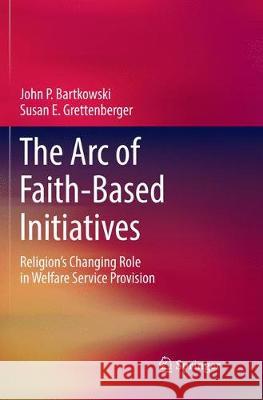The Arc of Faith-Based Initiatives: Religion's Changing Role in Welfare Service Provision » książka
topmenu
The Arc of Faith-Based Initiatives: Religion's Changing Role in Welfare Service Provision
ISBN-13: 9783030080693 / Angielski / Miękka / 2018 / 214 str.
Kategorie:
Kategorie BISAC:
Wydawca:
Springer
Język:
Angielski
ISBN-13:
9783030080693
Rok wydania:
2018
Dostępne języki:
Ilość stron:
214
Waga:
0.29 kg
Wymiary:
23.19 x 15.39 x 1.6
Oprawa:
Miękka











